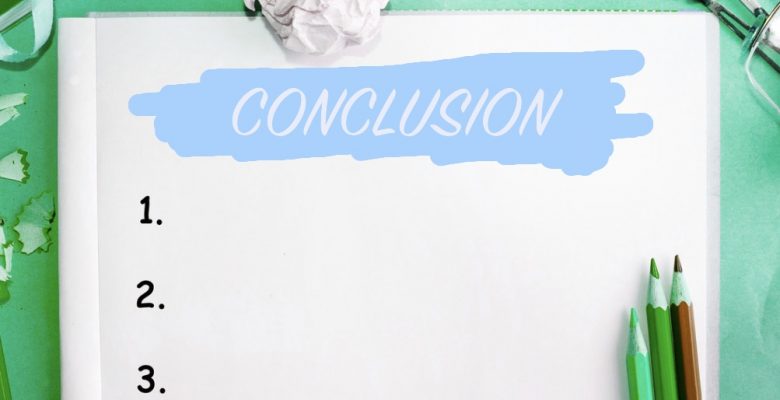Easy guidelines to conclude your essay
The conclusion is one of the more important parts of an essay. The conclusion is the last thing the reader will read, and it should give them a clear impression of what the piece was about as a whole. How do you write a great conclusion, though? Here’s our guide on how to conclude an essay.
Summarize the Thesis Statement
The thesis statement for an essay is a sentence that provides a summary of the central ideas of the paper. The thesis statement lays the foundation for the paper. Every good paper has an introduction that introduces the statement, body paragraphs that delve into more detail, and the conclusion. The conclusion summarizes the thesis statement, and how you choose to do that is a big part of creating an effective conclusion.
Most people include a summary of the thesis statement in their conclusion. They will restate the ideas as their conclusion, but that’s unlikely to have the effect you want. Instead, it would be best if you summarized the vital elements of the paper and tie up any loose ends left behind. Try using a quote or posing a question to readers.
Create a Meaningful and Catchy Conclusion
The conclusion shouldn’t be you simply rephrasing the paper. Doing this is sure to leave the reader feeling that the conclusion was no different from anything else in the paper. Readers might not even bother reading the rest of the paper.
You’ll get a better result by addressing ideas that weren’t completely clear in the original body of the paper. Look through the paper again and see if there are unanswered questions you could address in the conclusion.
Make the Conclusion Attention-Grabbing
Approach the ending of the piece with the same care and effort you put into the opening and body paragraphs. Try to end the paper similar to how you started it. End off the essay with a related quote or saying to the one you opened it with, for example. Rhetorical questions are another great way to end an essay. Ask the reader a question that gets them to think about what they’ve read.
The important thing is to take this last chance to grab the readers’ attention.
How to End Different Kinds of Essays
Different essays need to be ended in unique ways. There’s no such thing as a one-size-fits-all conclusion. An interview narrative essay needs a different conclusion than an argumentative essay, for example. Here are the different essay types and how to conclude them effectively.
Argumentative Essays
An argumentative essay calls on a writer to take a stance on a topic and discuss their point of view. The conclusion for an argumentative essay is similar to the one outlined above, but you’ll have to add a bit extra so as not to leave the reader asking questions. The reader should understand the topic at hand, your stance on it, and the reasoning behind your position.
You will spend the body paragraphs of an argumentative essay discussing your stance and proving why you have the right opinion on the matter. The conclusion is a reflection of that. The conclusion will explain to readers why you have taken your stance and why you feel that it is the right one. Being able to do this effectively justifies the entire essay.
You could use the conclusion to showcase how things would be like if everyone adopted the other stance. Avoid getting into too much detail on that one, though, or you’ll soon find yourself writing another essay rather than a conclusion.
Narrative Essays
Narrative essays are a bit different from your standard essay. These essays tell a story rather than trying to prove a poit to the reader. How different the body of the essay is is reflected in the difference in how to write the conclusion.
Trying to use the conclusion to capture the main themes of the narrative would confuse readers. It’s better to use the conclusion of a narrative essay to bring up the moral of the story. You can use a rhetorical question to end this kind of essay, but make sure to practice some creativity in how you deliver the question.
Keep the conclusion short and sweet. Don’t get bogged down in the details when writing the conclusion. Leave the reader with an image or thought. Doing this is the best way to end a narrative properly.
Conclusion
The essay conclusion should be a culmination of all the different ideas. The conclusion needs to leave readers feeling informed, and like all their questions have been answered. Create a descriptive conclusion that highlights the core message without being too wordy or bogged down in details. Keep the conclusion simple to engage and interest readers until the very end of the paper.
